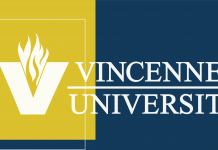Expanded Voucher Program May Impact Public And Private Schools In Different Ways
By Hope Shrum
TheStatehouseFile.com
INDIANAPOLIS—The creation of education savings accounts and an expansion of the Indiana Choice Scholarship Program, or voucher program, may open up opportunities for students in private schools, but they may also take more funding away from public schools.
As House Bill 1005, which outlines these actions, moves through the Senate, the debate over whether this is the right move for the state continues.
This bill would establish the Education Indiana Scholarship Account Program, thus expanding the state’s already controversial voucher program. It also expands the financial eligibility for the voucher program, which would allow more students to use it.

The education savings accounts would permit eligible students who attend a qualified school to receive an annual grant of $7,000 that could be used to pay nonpublic school tuition or other education-related expenses.
Don Street, superintendent of the Kankakee Valley School Corporation in Jasper County, sent a letter March 3 to parents of students in the district informing them about HB 1005 and two similar bills and urging them to reach out to their representatives if they feel strongly that the bills should not become law.
“Public schools provide a strong educational environment for Indiana’s children,†Street said. “And Education Savings Accounts, if enacted, and expanded school vouchers would put this environment at risk by directing resources away from those schools to nonpublic schools and/or home schools that are not subject to the same rigorous scrutiny for their use of taxpayer resources.â€
Street said that Indiana already has a very large voucher program and expanding it would take away money for school programs for the 94%—according to Stats Indiana—of Hoosier students in public education.
According to research by Educationdata.org, approximately 56.6 million students attend primary and secondary school in the United States. Nearly 90% of those students are in public schools.
Some opponents to HB 1005 are concerned that parents would be able to use the money from their child’s education savings account to purchase whatever they like, even things not for the child’s education.
Street said that monitoring these accounts will require the state to create an entirely new department in the treasurer’s office. He also said other states have reported cases where people used the money for anything the parent deemed appropriate, including large-screen televisions and vacations.
John Elcesser, executive director of the Indiana Non-Public Education Association, said there are over 36,000 students currently in the state voucher program, and the expansion could make it more affordable to families who are already using or want to use the program.
“[Vouchers] may provide the opportunity for some additional families to make that choice or to some families, you know, who will be able to better afford,†Elcesser said. “We have a tendency not to really focus on the impact on schools, but really the impact on families and kids.â€
He added that he doesn’t think many families will take advantage of the education savings accounts since there is only a small group of students eligible for them—ones who require special education, have a parent serving in active duty in the United States Armed Forces or National Guard, or are in foster care or under care and supervision of the Indiana Department of Child Services.
“We want all kids to be successful, no matter what school they attend, because that’s what’s good for the state of Indiana,†Elcesser said.
HB 1005 currently sits in the Education and Career Development Committee, where it will be discussed and voted upon to see if it will return to the Senate floor.
FOOTNOTE: Â Hope Shrum is a reporter for TheStatehouseFile.com, a news website powered by Franklin College journalism students.






